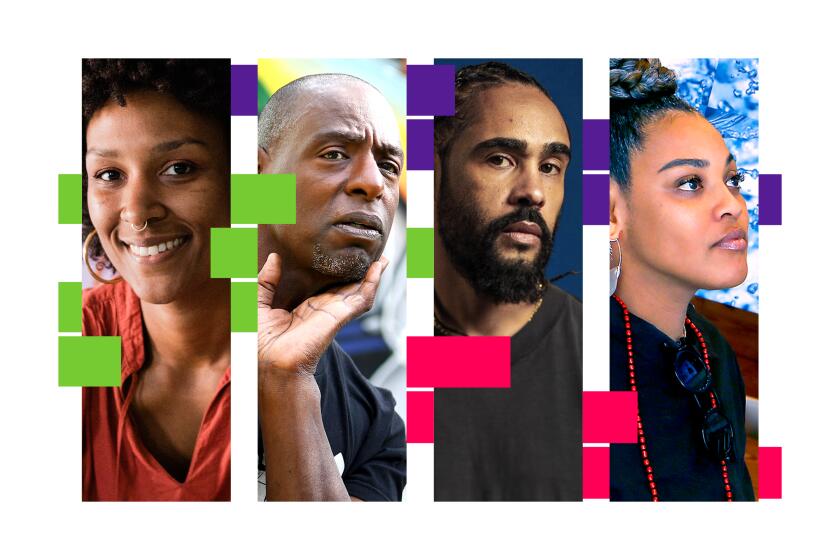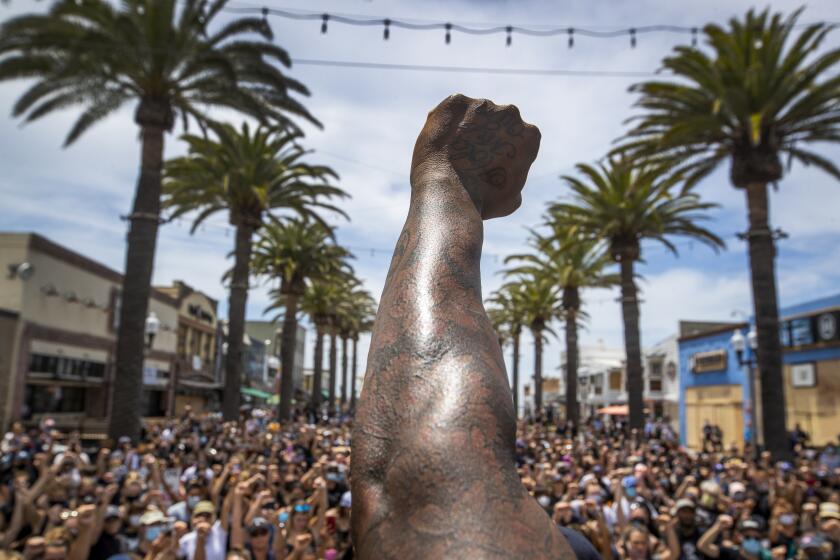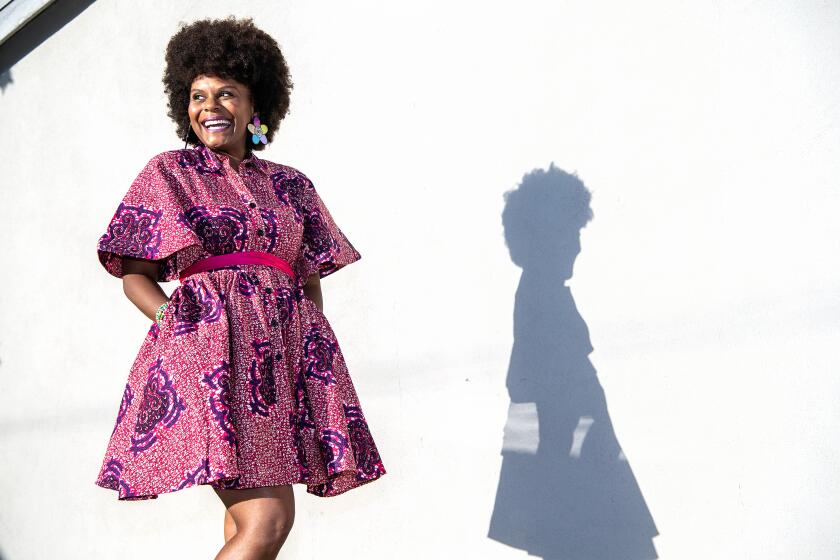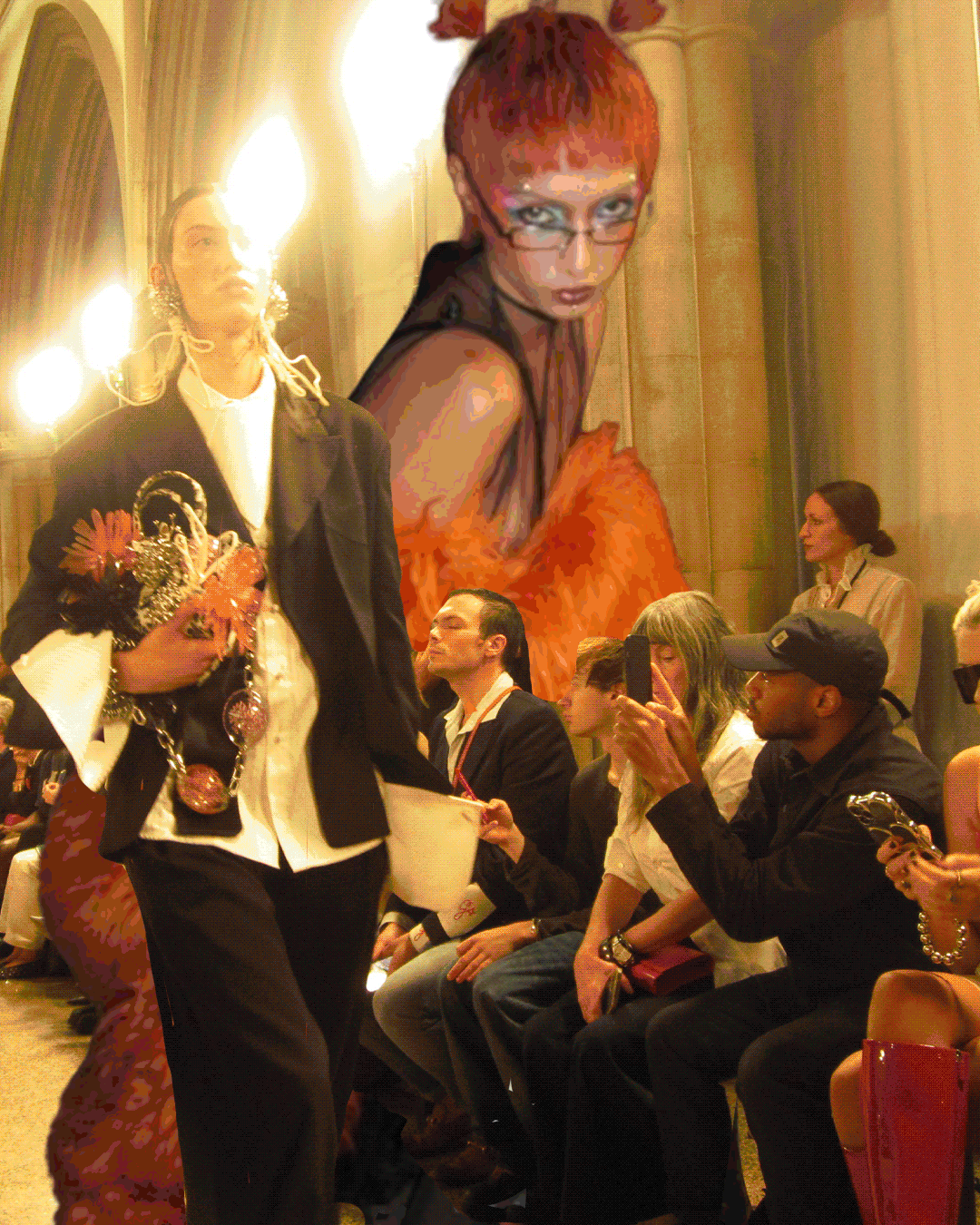The fashion world is complicit in racism. Here’s how I would fix it
I’m putting the fashion world on notice. When it comes to the subject of diversity and inclusion, the industry tends to offer polite air kisses, not sweet full-on, pre-coronavirus embraces.
As a black woman, I know this all too well. On a hot September morning in 2018, I waited to get into a show at New York Fashion Week. Standing outside looking at my ticket, I was excited to discover I was seated in the front row. Front row! With years of hard work as a fashion stylist, this seating felt like my badge of honor. Dressed to the nines in the designer’s spring collection, I felt as confident as ever as I strolled up to my seat. Except there was a problem: A white influencer, surrounded by photographers, informed me it was her seat. Double-booked!
We both attempted to play nice and squeeze our butts onto the same chair. My moment of excitement had morphed into utter frustration as, once again, I was fighting for my seat at the fashion table. Then, as the show began, my disappointment deepened as I watched exactly one black model come down the runway.
As coronavirus restrictions lift, firms are getting back to business and hoping for your support. Here’s a list.
A morning of such promise was soon dashed by a reality that has long plagued the fashion industry. In my front-row half seat, I was close and yet felt so far away.
Another time, I was approached by a fashion retailer to contribute to its online magazine. Thrilled to meet with the team, I brainstormed with them for hours, and with a verbal agreement, I shared my ideas freely. I quickly noticed the lack of diversity in their office but felt wonderful to be adding my voice to the brand’s message — or so I thought.
Prior to our next meeting, I decided to change my hair from a mainstream straight look to a more Afrocentric style. Suddenly the mood changed. There was no longer a collaboration offer, and I watched all my ideas show up on their platform. Again, so close.
Next meeting: Excited to be selected to work on a brand campaign with a luxury jewelry brand, I arrived at the offices to participate in an arranged focus group of fashion influencers.
As I looked around the room, a familiar feeling settled into my gut. The 15 influencers selected for the campaign included one Asian, one Persian, one black person and 12 plain-Jane white women. Although I was looking forward to expanding my reach with this campaign, I couldn’t help but notice the utter lack of diversity in the room. Instead of feeling proud of my body of work, I felt like I was a token filling a quota. Yet again, so far away.
This year’s L.A. Pride will be a peaceful protest march in solidarity with the Black Lives Matter movement, organizers announced. It will take place June 14 starting at Hollywood and Highland.
Over the years in Los Angeles, there have been too many photo shoots, TV show sets and brand events where I was the only person of color.
I do my best to include black models in my work, but it’s not enough. Historically, black people have been essentially shut out of the fashion world and have to work twice as hard for crumbs.
It’s time for this to change.
As the industry reels from massive revenue drops due to COVID-19 and our nation struggles with our racial divide and the historically high unemployment rate, now is the perfect time for brands to bring about real change. I’m not talking about posting support memes and black boxes on Instagram for #BlackoutTuesday but actually addressing the elephant in the room.
Where are the people who look like me at your offices? What about your models and your influencers? Can industry leaders stop writing love letters and do the heavy lifting?
It’s no longer acceptable to say you’re not racist. Let’s walk the walk and double down on diversity. It’s time for the fashion community to shed its complicity in our racist history.
How can fashion do better? Fashion media should feature more black designers, actors, writers, photographers and contributors.
Fashion houses must hire, train and nurture more black designers, seamstresses and marketing executives.
Fashion brands should review their social media campaigns and include more black models and influencers.
In her videos, Tabitha Brown lifts your spirits, offers a virtual hug and helps fill your tummy during these challenging COVID-19 times.
Celebrity stylists must pull more black designers for red-carpet exposure. Let’s see more inclusive panels featuring more black speakers.
It’s time for more television producers to seek out black talent and fashion experts. White influencers need to speak up and support their black fellow creators.
Now is the time for fashion to elevate black voices in all spaces. The work doesn’t stop when the outrage ends. Brands must begin an open dialogue with black creatives.
If 2020 has taught us anything, it’s that the time has come to break down the old system and rebuild. For fashion to survive, it must become more inclusive.
Melissa Chataigne is a TV host, motivational speaker and style expert known for empowering people with confidence through style. She lives in Los Angeles with her husband and two kittens. Follow her at @chataignestyle on Instagram and melissachataigne.com.
More to Read
Sign up for The Wild
We’ll help you find the best places to hike, bike and run, as well as the perfect silent spots for meditation and yoga.
You may occasionally receive promotional content from the Los Angeles Times.













